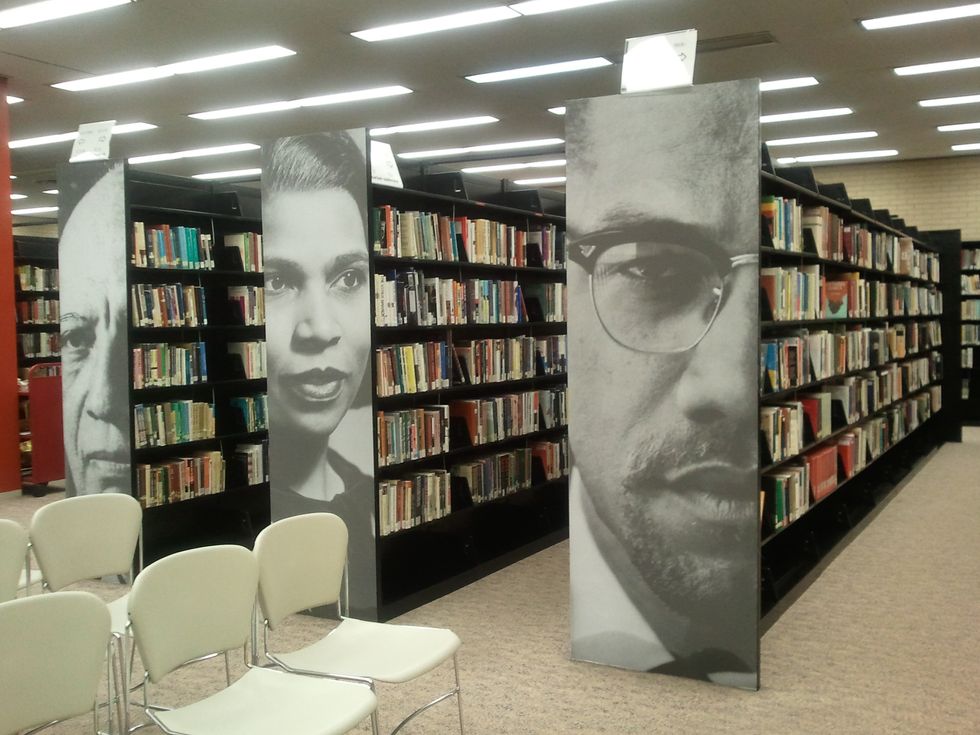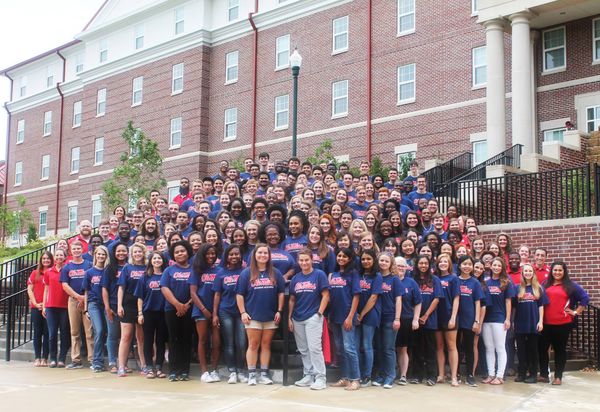Taking African American Studies this semester was more than eye-opening. It made me realize my initial ignorance of just how bad the American experience is for black people, as well as a revelation of the importance of listening to those with lived experience.
Because of this, I wanted to share an assignment our professor gave: a conversation with a colleague on a topic of our choice. This has been modified to fit the article format better.
In our discussion, my colleague had suggested that what was often told about America’s history of oppression was the less gritty, where things like the smear campaigns against Martin Luther King, Jr. aren’t discussed, nor the violent confrontations during the Selma and Montgomery march by protesters and law enforcement.
The history of figures like Rosa Parks, too, have been minimized. Parks had a monumental history of advocating for the rights of African Americans in the NAACP, and of defending black women that experienced no justice at the brutal sexual violence of white men.
What speaking to my classmate let me reflect upon was that I had entered the United States with rose-tinted glasses. I knew police brutality existed, and I knew of the country’s history of colonization and slavery. Who doesn’t?
But what I didn’t expect to hear were the stories of black classmates pulled over by cops over the assumption that they had drugs. The stories of young girls hiding from cops because they feared for their lives. The stories of whites that had legitimately suggested blacks had it ‘in their blood’ to serve them.
I hate to say it, but I’m no longer surprised by it. Outright prejudice stares America in the face and it still continues to be denied or argued away. African Americans witness the same response received throughout the century after slavery: some whites listened, others didn’t. Others ensured it remained that way.
My colleague and I spoke about political activists like Michelle Alexander, whose TED Talk came to mind regarding black incarceration. When Alexander compares the incarceration of blacks to slavery in the United States she draws upon the consequences of both: removal of the rights of a specific part of the American population, and, ultimately, a label that renounces citizenship.
The inability to vote, the difficulty of getting employment and establishing one’s place in society is analogous to the end of slavery in 1865, for the inability for the emancipated to partake in the nation ends up being an eternal punishment for many.
W. E. B. Du Bois disputed the claims that disenfranchisement during Black Reconstruction remained because of a failure on the part of African Americans, and argued that integration failed because the means for African Americans to successfully do so weren’t there. He said:
“When a group of persons have been for generations prohibited from self-support, and self-initiative in any line, there is bound to be a larger number of them who, when thrown upon their own resources, will be found incapable of competing in the race of life."
While Du Bois was discussing a different period of integration, this over 100-year-old quote parallels the struggle of many African Americans that get caught in a hideous cycle of oppression under the American justice system. Those who had been emancipated from both slavery and prison faced ridiculous obstacles in order to do so.
America fails to consider the link between racism and criminality when it insists that crime is merely going to be resolved with punishment. It puts a Band-Aid over a crack in a pipe and wonders why the room keeps flooding.
What do I take from all this? My study abroad year in the United States and my African American Studies class has taught me that, overall, we undermine lived experience.
In America and England, I see people responding negatively to suggestions that racism and prejudice still exist but aren’t frustrated with bigotry itself. It seems we who are privileged care more about maintaining the idealized level of equality we create, with a step over this line being seen as people being offended about nothing.
It’s a notion that my country, and America, needs to resolve. Which is why I bring up the importance of lived experience.
When a person of color says that a remark or joke about their race is more damaging than we think it is, we should listen. We should think about what we’re saying and why our speech or opinions are oppressive even if we may not see it as such.
When minorities ask this, they’re not asking us to blindly believe what they say; ask them for historical, statistical and sociological evidence and they’ll give it to you. But what we need to do is to take into consideration the perspective minorities are offering, and not just assert that they can’t bring identity into it.
Experience is expertise: witnessing bigotry and seeing it happen, widespread and to others is valid. Don’t ask how to build a better robot and then deny the engineers that offer you an enlightened method of doing so.
If we care about eliminating prejudice, the privileged should listen to the people it targets. No one's asking for us to feel guilty, but we are being asked to consider how we may be enabling oppression even if it makes us feel uncomfortable.





 Going to the cinema alone is good for your mental health, says science
Going to the cinema alone is good for your mental health, says science












 women in street dancing
Photo by
women in street dancing
Photo by  man and woman standing in front of louver door
Photo by
man and woman standing in front of louver door
Photo by  man in black t-shirt holding coca cola bottle
Photo by
man in black t-shirt holding coca cola bottle
Photo by  red and white coca cola signage
Photo by
red and white coca cola signage
Photo by  man holding luggage photo
Photo by
man holding luggage photo
Photo by  topless boy in blue denim jeans riding red bicycle during daytime
Photo by
topless boy in blue denim jeans riding red bicycle during daytime
Photo by  trust spelled with wooden letter blocks on a table
Photo by
trust spelled with wooden letter blocks on a table
Photo by  Everyone is Welcome signage
Photo by
Everyone is Welcome signage
Photo by  man with cap and background with red and pink wall l
Photo by
man with cap and background with red and pink wall l
Photo by  difficult roads lead to beautiful destinations desk decor
Photo by
difficult roads lead to beautiful destinations desk decor
Photo by  photography of woman pointing her finger near an man
Photo by
photography of woman pointing her finger near an man
Photo by  closeup photography of woman smiling
Photo by
closeup photography of woman smiling
Photo by  a man doing a trick on a skateboard
Photo by
a man doing a trick on a skateboard
Photo by  two men
two men  running man on bridge
Photo by
running man on bridge
Photo by  orange white and black bag
Photo by
orange white and black bag
Photo by  girl sitting on gray rocks
Photo by
girl sitting on gray rocks
Photo by  assorted-color painted wall with painting materials
Photo by
assorted-color painted wall with painting materials
Photo by  three women sitting on brown wooden bench
Photo by
three women sitting on brown wooden bench
Photo by 
 Photo by
Photo by  Photo by
Photo by  Photo by
Photo by  Photo by
Photo by 


 people sitting on chair in front of computer
people sitting on chair in front of computer











